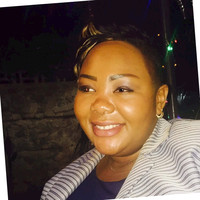Against all odds Stephen Mumpande wakes up early in the morning to do household chores before he joins fellow villagers at a community development meeting at a local school.
Mumpande (46) of Chemba village under Chief Saba in Binga has over the years been excluded from village programmes, merely because he walks with a difficulty due to problems with his legs.
An avid fan of English Premier League side Chelsea, Mumpande today is an integral component of his village’s developmental agenda, thanks to a number of sensitisation programmes that his community has embraced over the years.
“At first I was regarded an outcast by my own people because of my condition,” Mumpande said.
“They would never listen to someone like me when I stood up to contribute during village meetings.
“However, there has been a lot of change and I am happy to tell you that I am part of many developmental programmes happening here in Saba.”
Mumpande, who is single and stays alone at his home, said his situation was worsened by the impacts of climate change.
“I developed this condition at a later stage in my life,” he said.
“As a result it has been difficult to cope in this arid area and the situation has been exacerbated by climate change.”
According to the World Bank, persons with disabilities represent 16% of the global population and face widespread forms of social and economic marginalisation yet have received little attention prior studies of climate change and social inequality.
For Mowa Munkuli, who is visually-impaired, life has not been that rosy to the extent that he nicknamed himself “Madubeko”, the troubled one.
“I grew up a poor man and my problems were worsened because I am visually-impaired,” he said.
“I had problems raising my family to the extent that I called myself Madubeko.
“It was a torrid time until the community embraced us in developmental programmes.
“I am happy to say that I am a pastor in church, I am a farmer and I participate in a number of programmes.”
Munkuli said he was able to feed his family if supported through programmes that mitigate climate change.
“I am capable like anyone else despite the fact that I am visually-impaired,” he said.
“We welcome all programmes that allow us to improve our yields particularly the Pfumvudza initiative.
“Our area receives low rainfall and the temperatures are high, so we hardly have good harvests.”
Munkuli, is among 4 000 households in Binga that have received drought-tolerant seeds (5kg pearl millet and 2,5kg cow peas from the Zimbabwe Red Cross Society under a climate resilience project.
The project, which is supported by the Finish Red Cross and Danish Red Cross, is running under the Climate Smart Resilience project until 2025.
“The project’s goal is to contribute to enhanced individual, family, community and institutional resilience through strengthened capacities to cope, resist and endure risks,” said ZRCS secretary-general Elias Hwenga.
“Binga communities are vulnerable to the devastating impact of climate change, so there is need to assist these communities to adapt as a strategy of building resilience to the impact of climate change.”
Hwenga said his organisation had facilitated disability and inclusion training programmes under the climate resilience project.
“These training are targeting Red Cross volunteers, community leaders and people with disabilities,” he said.
“As we take action to address climate change, we need to respect, promote and consider obligations on human rights, including those owed to persons with disabilities.
“Part of our project in Binga has embraced disability inclusive climate action.”
Munkuli said he was happy to be considered for the seed distribution programme.
“I am thankful to Red Cross and the seed came on time,” he said.
“With the training that we got, I hope to increase my yield this year.”
In 2019, Zimbabwe crafted the national disability policy with the aim of domesticating provisions of the Convention on the Rights of Persons with Disabilities which it ratified.
It is estimated that about 1,4 million people in Zimbabwe have some form of disability.
The country was among the first to ratify the UN Convention on the Rights of Persons with Disabilities in 2013. It remains one of the few countries in Africa with legislation that specifically caters for people with disabilities.
By domesticating the UN Convention on the Rights of Persons with Disabilities, the country would have moved together with other progressive countries in putting disability on the national agenda.
The national disability policy will ensure that facilities such as ramps, for those on wheelchairs and Braille for the visually impaired among other disabled friendly facilities are found in public places.
The policy also encourages the embracement of disability inclusivity in all facets including climate change mitigation programmes.









